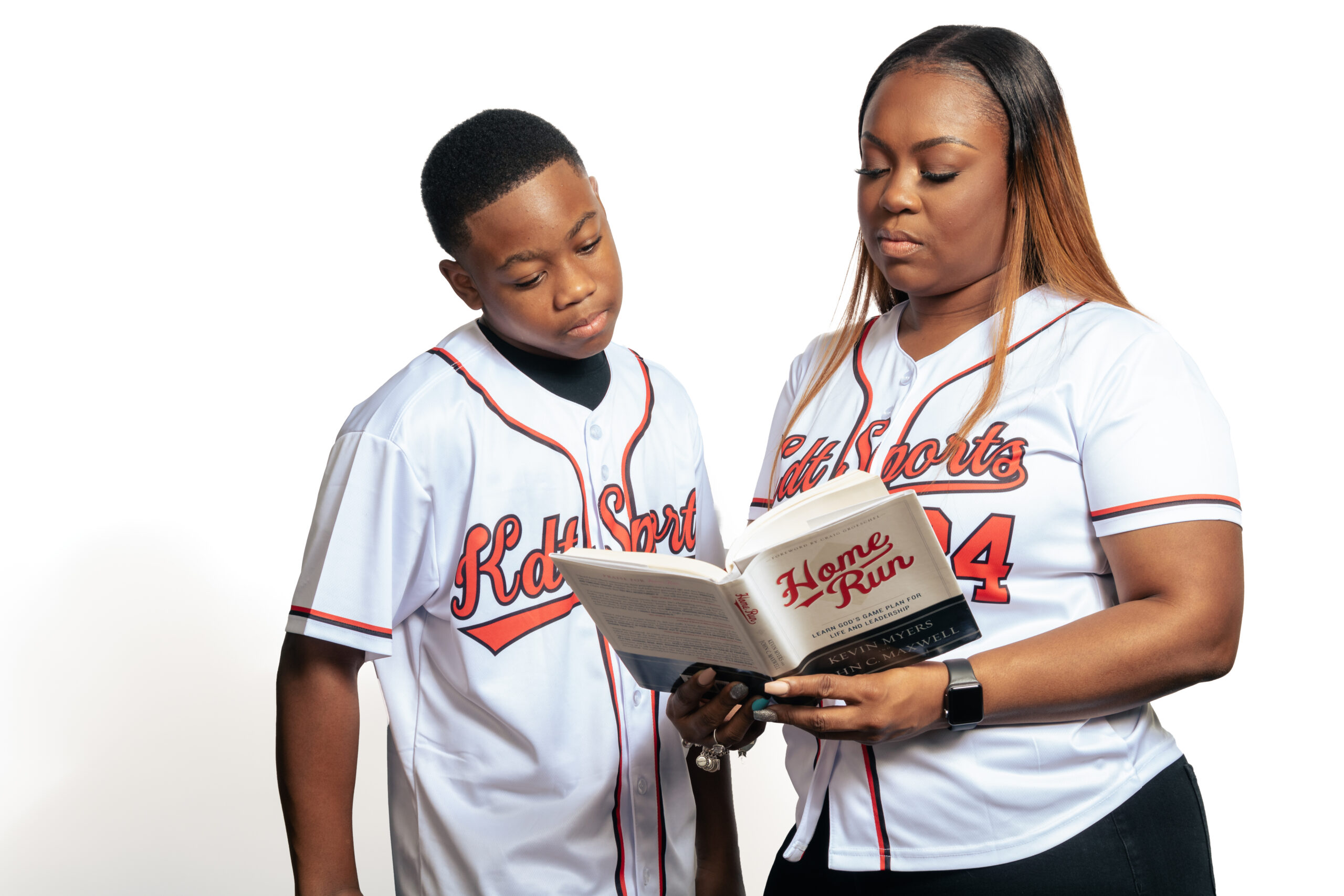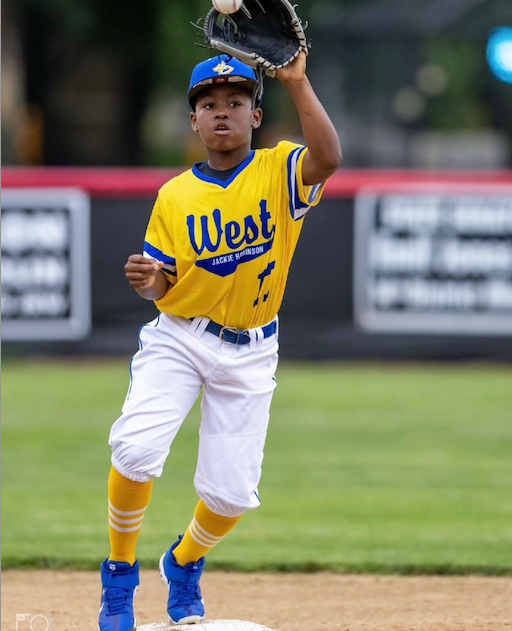
Dr. Kamilah Hampton is a natural high achiever, a bright spirit in an often-dim world for young black boys. She earned her doctorate at age 32, and has propelled herself into service to others, a gift inspired by her mother. Though Dr. Hampton went to school to become a speech/language pathologist, her plans quickly changed […]
Dr. Kamilah Hampton is a natural high achiever, a bright spirit in an often-dim world for young black boys. She earned her doctorate at age 32, and has propelled herself into service to others, a gift inspired by her mother.
Though Dr. Hampton went to school to become a speech/language pathologist, her plans quickly changed when she realized her true passion – to work in urban neighborhoods, directly serving African American young males. Growing up, she knew, inherently, that she wanted to help those who often don’t have a strong support system within their communities. That passion drove her to change her major and dive headlong into an impressive educational journey where she earned her EdD in Educational Leadership, focusing her dissertation on Social/Emotional Support. Her goal, then and now, is directly helping those young boys find paths to college and succeed in their education.

She’s a Principal at the Richard J. Daley Academy, a Chicago Public School. She furthered her mission by starting a nonprofit, Community Excel, and launching KDT Sports, a unique athletic training program in Chicago. KDT Sports focuses on supporting children of color who lack the necessary resources and skills to gain college scholarships. Its mission, “to provide an accessible sports facility to youth in need of athletic and academic support to provide options to encourage them to refrain from engaging in negative activities,” is thriving due to an undeniable spirited force in Dr. Hampton and her colleagues.
With the help of David Reed, a respected baseball coach equally dedicated to seeing black boys thrive in athletic training and education, they created the organization to give students the tools for success. To achieve this goal, KDT Sports has partnered with Chicago Public Schools to provide essential after-school programming throughout the city. Students can enroll in the program through their school districts or at KDT Sports. Either way, black youth are given the opportunities to excel and achieve.
And she’s encouraged by her son, Terrell, 12, whom she’s proud of. “I’m creating a legacy not only for my son but also for possibly other cities, those educational systems, to look at how we are preparing these boys for school.”
Her ultimate goal is to have a KDT Sports facility in every major U.S. city.
Return on Good: What are you most passionate about?
Dr. Hampton: One of the things I’m most passionate about is working with black boys and in sports. So, in every aspect of the sport, one of the things I was noticing as I have been working in tutoring African American males as they would have all of these opportunities sports-wise, but academically they just continue to miss the mark. So, for me, I wanted to find a way to close those opportunities and those achievement gaps for those black males and just create some opportunities for them. And that’s what I’ve been doing since 2013.
Return on Good: What is KDT Sports, and what is your philanthropic vision? Who are the D and T?
Dr. Hampton: KDT Sports was built on my working in the community. Black boys must be invested and engaged in something for it to be important. So two of the very most significant recommendations I proposed to them were mentorship and extracurricular activities. Those are the things that engage boys. If we put social/emotional support into these neighborhoods and opportunities for them to choose to do something differently, we give them a real fighting chance. To date, we have about 145 kids who have gone to college (by engaging in sports and being mentored with their educational pursuits).
The D is my business partner, David Reed. David is a product of CPS (Chicago Public Schools). He grew up as a product (of the environment): being able to obtain a baseball scholarship and going through CPS successfully. He received his degree in Education and then wanted to come back and further support African American males. So he is like the “catching specialist” in baseball. He’s the Assistant Coach at Kenwood Academy High School, a prominent high school in Chicago. As well he is a Highlight Coach for the Chicago White Sox. I am an academic; he does all things athletic.
The T is Terrell. Terrell is my son, and why I thought this was extremely important because I wanted to show my son service. As a black male, he’s highly blessed, and he has a parent who can give him academic resources. But I also wanted him to understand from me that what you do for others is what’s most important. What makes you a good person is how you treat others and how you provide service to others. It’s something that money could never even buy for me.
Return on Good: What does success look like for the KDT Sports program?
Dr. Hampton: One of my favorite success stories is Amani Jones. When I met Amani, he was about 16 years old. Amani started playing football when he was in the ninth grade. He was a diverse learner, so he struggled academically, got into ninth grade, and fell in love with football. And just to have a kid who had never played football before becoming a D1, highly sought-out recruit, an athlete! It was amazing to see. But one of his most significant barriers was being a diverse learner student, which is already hard regarding standardized testing.
The only accommodation that they give is extra time. So it isn’t like, “Oh, you get help with this content.” You have to come to the test ready and prepared. Amani kept getting like a 13, and he needed a 17. He loved the University of Iowa. And that’s where he ended up going. He was one of the hardest-working kids that I have ever met. We spent Memorial Day studying. We split the work in the lab. We’re sweaty, and I’m like, I got to get to the college right before it was time to go to school. Amani got there 2 seconds later and could go to school on a full-ride scholarship and leave the city of Chicago (where he lived in a gang-infested neighborhood). He was homeless. He was staying with the coach at the time. So it almost felt like I became like a second mother to him. But kids like Amani ignite it (my passion). Something in me was like, I have to do more, right? Other Amanis are in the city of Chicago, and they need me.
So for me, it’s bigger than just sports; I’m changing the trajectory of lives for young black boys, of which I’m incredibly proud.
Return on Good: Who is your philanthropic role model?
Dr. Hampton: I received my philanthropic mindset from my mom. She’s one of my biggest role models. Our home was like the hub for everyone. I had many unofficial foster sisters and brothers. My mom made our home a safe place. It was always this place of love, service, and caring. The home environment I experienced was why I chose education for my career. I just love supporting kids. We lived in Auburn Gresham, a neighborhood in Chicago – a high-violence neighborhood. We lived with my grandparents until I was five, and my mom worked so hard. She moved us out of the city because I have a black brother. One of her biggest fears was, “I didn’t want him to become a statistic, so I had to change his environment,” I always knew that I wanted to give back because my mom always had us engaged in service.
Having a mother who instilled that in us made us know we were blessed.
Learn more about Dr. Kamilah Hampton
Ready to Do the Best?
If you’re a philanthropist with an inspiring story to tell (or know someone who is), contact Return on Good. We may select you for our I Am a Philanthropist initiative.